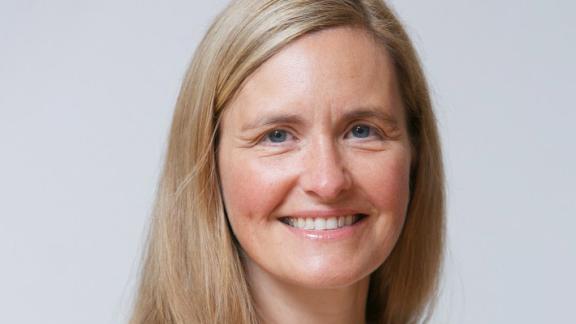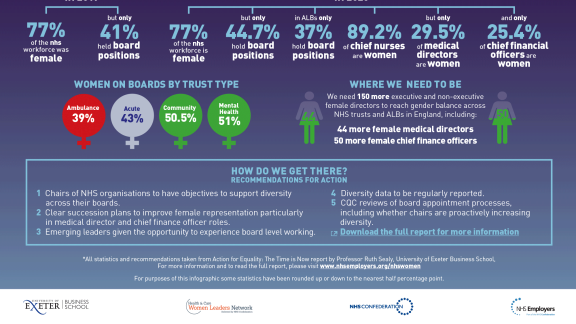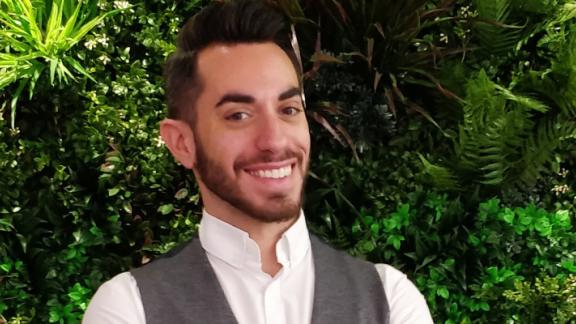NHS Reset: Freedom to speak up in the COVID-19 pandemic and beyond

NHS Reset is an NHS Confederation campaign to help shape what the health and care system should look like in the aftermath of the pandemic.
As we move into winter, it is critical that we learn lessons from the first phase of the pandemic and listen to the experiences of our staff, says Dr Henrietta Hughes OBE, National Guardian for the NHS.
NHS Reset is an NHS Confederation campaign to help shape what the health and care system should look like in the aftermath of the pandemic.
As we move into winter, it is critical that we learn lessons from the first phase of the pandemic and listen to the experiences of our staff, says Dr Henrietta Hughes OBE, National Guardian for the NHS.
As a GP I have seen the impact of COVID-19 on my patients, their families and my colleagues, and the long-term effects it has had personally and professionally on all of us in the NHS. I am humbled and inspired by the incredible NHS workers who continue to deliver excellent care in extreme circumstances.
As the National Guardian for the NHS I lead a network of over 500 Freedom to Speak Up Guardians in England so that people can speak up about anything which gets in the way of delivering great care.
Over the last three years, guardians have handled over 35,000 cases and shared the themes of these cases with my office. As well as helping us understand the issues being raised, the data also provides assurance that speaking up is happening.
Checking the pulse of speaking-up cultures
Part of the role of the National Guardian’s Office is to challenge and support the healthcare system as a whole. All of us will have seen news stories during the pandemic about workers speaking up and not being listened to or, worse still, being victimised and actively discouraged from talking about these issues openly.
So, in April 2020 we launched pulse surveys asking asked Freedom to Speak Up guardians about the speaking up culture in their organisations during the pandemic and the types of cases they were handling.
Feedback was mixed. Some told us that an established culture of speaking up made things easier. Others reported they were told there simply wasn’t time to listen to everything workers were raising. There were also anecdotal reports of communications teams advising workers not to speak to the media or use their social media to post comments. With the CQC chief inspectors, I wrote to all trust CEOs and chairs to remind them about how important it was to maintain safe speaking up channels for their workers.
Changing attitudes
We repeated the pulse surveys in May and June, and a change in attitudes and perceptions evolved as the pandemic continued. In the first pulse survey, 72 per cent of guardians who responded believed that workers continued to be encouraged to speak up. By June that had risen to 93 per cent.
This was reflected in the feedback guardians provided about whether speaking up was decreasing or increasing. In April, 40 per cent of respondents said speaking up was decreasing, 39 per cent said there was no change and 21 per cent said speaking up had increased. By June, however, just over half said speaking up was increasing. The percentage of those saying it was decreasing halved to 17 per cent, with the remaining third saying there was no change.
The types of matters workers were speaking up about also changed over the three months. While anecdotally we were told that speaking up about behaviours was deemed ‘trivial’ during the peak of COVID-19 cases, reports of behavioural issues such as bullying and harassment rose from 46 per cent in April, to 57 per cent in May and up to 74 per cent in June.
Guardians also reported that matters relating to worker safety, including PPE, social distancing and risk assessments, were being brought to them, with an increase in the percentage of respondents reporting that workers were speaking up about the impact of COVID-19 on black, Asian and minority ethnic workers.
The guardians’ role in recovery
So what learning can we take from this? The surveys asked guardians to what extent their organisations were involving them in recovery discussions. Disappointingly, over half of respondents reported that they were not involved in feeding into the COVID-19 recovery phase to ensure lessons were learned and embedded.
The pandemic has highlighted that there is still a way to go to make speaking up business as usual in the NHS. But it has also shown that guardians play a vital role in enabling organisations to listen to their workers and use that to learn and improve.
Everyone working in healthcare has been on a journey we have never experienced before. But we must not shy away from the difficult conversations. Some of the information that has been brought to the fore by the crisis has revealed shocking inequities, such as the disproportionate impact of COVID-19 on BAME communities. It is vital that these are acknowledged, discussed, addressed and action taken as necessary.
At the National Guardian’s Office, we often refer to speaking up as a ‘gift’. Workers can provide vital information to support the delivery of first-class healthcare. This is invaluable to those curious to do better and confident enough to accept there is always room for improvement.
When workers courageously speak up, make it your priority to listen up and follow up. Bring your Freedom to Speak Up guardian into your reset conversations so that workers’ voices can truly be heard and together we can make speaking up business as usual.
Dr Henrietta Hughes OBE is the National Guardian for the NHS. You can follow the National Guardian’s Office on Twitter @NatGuardianFTSU



